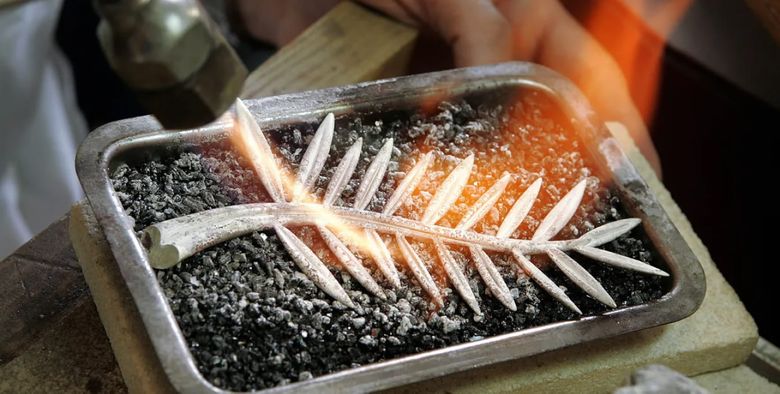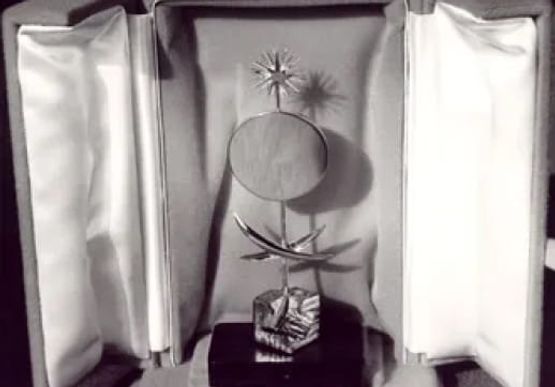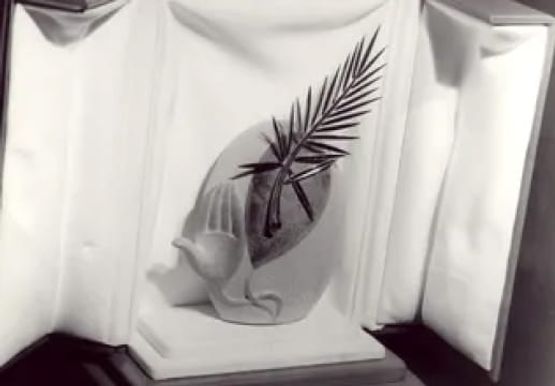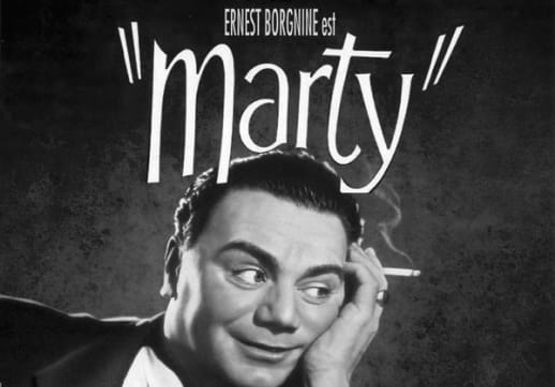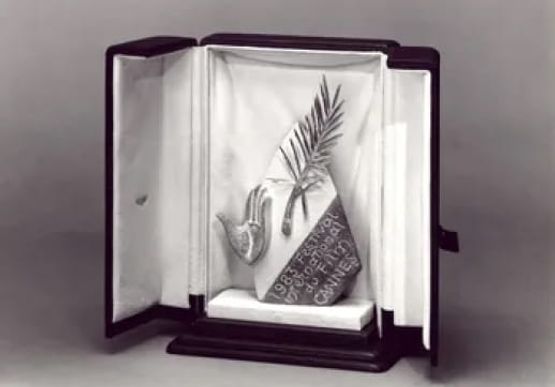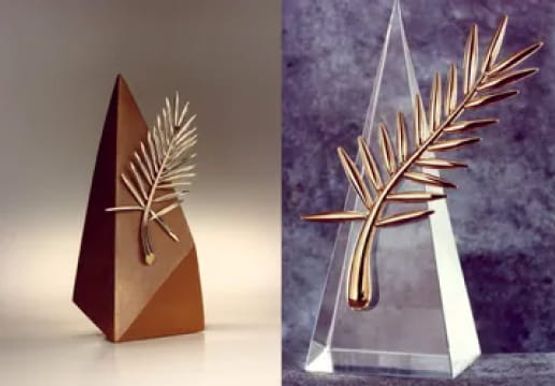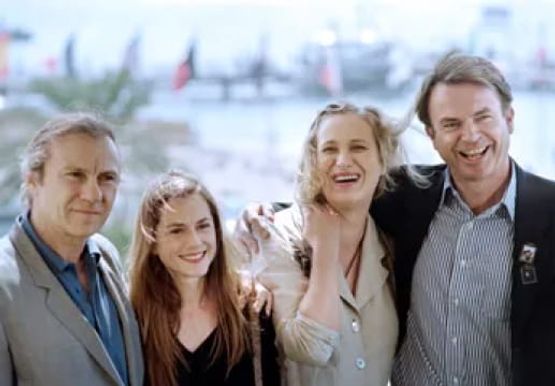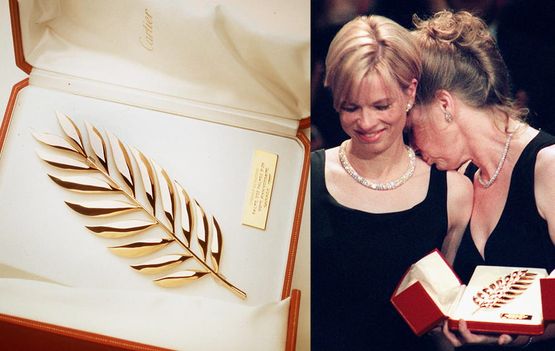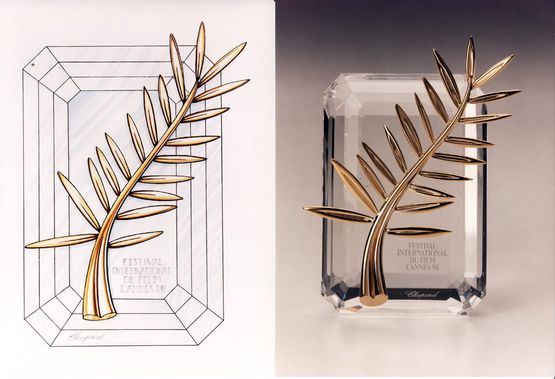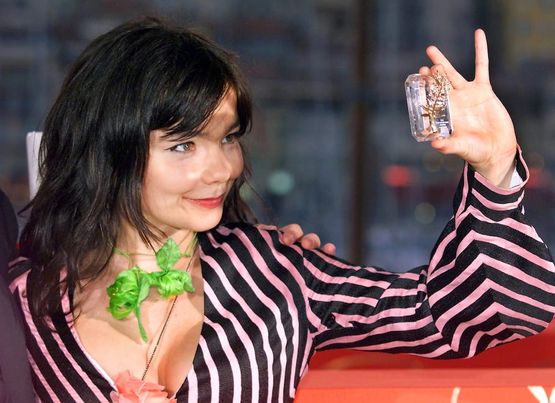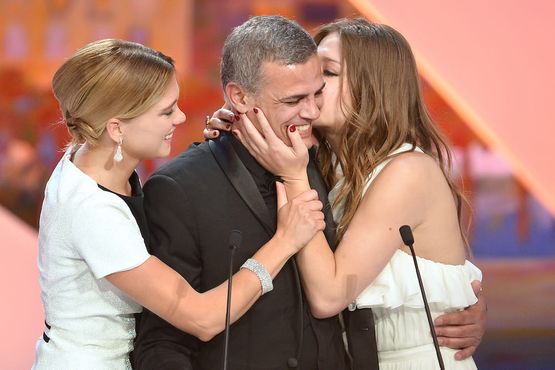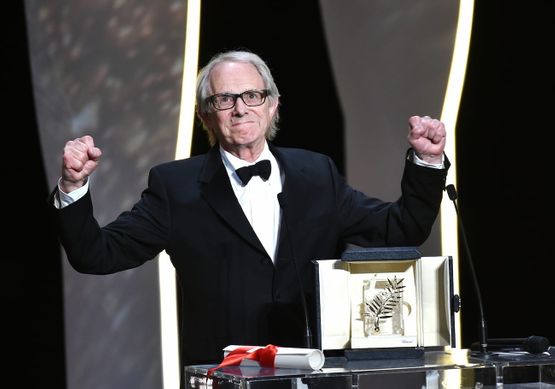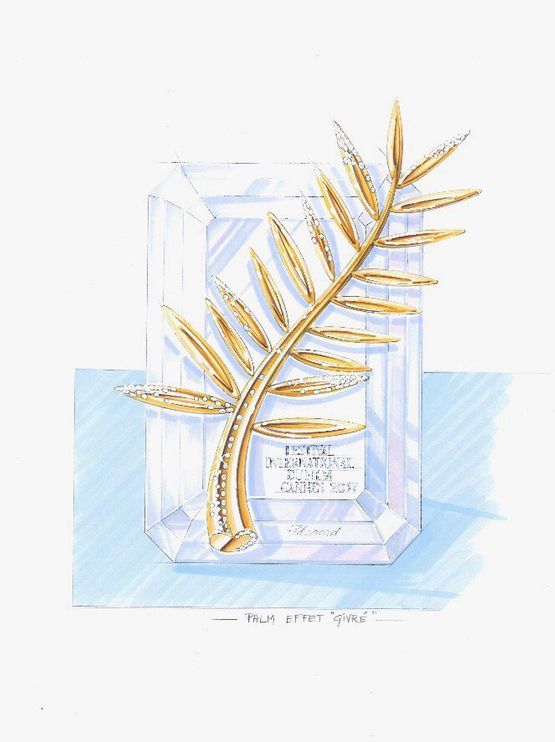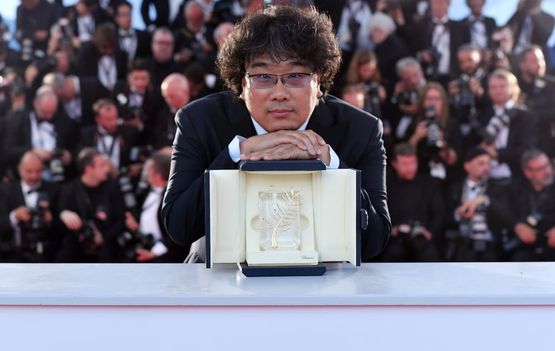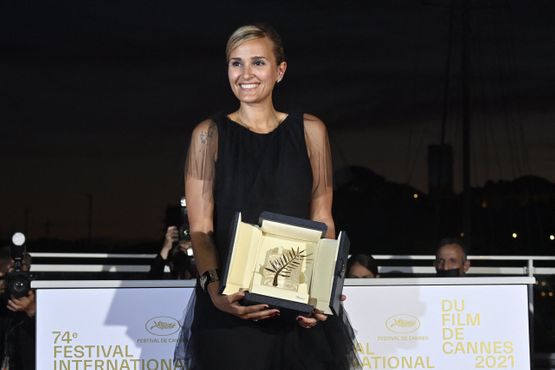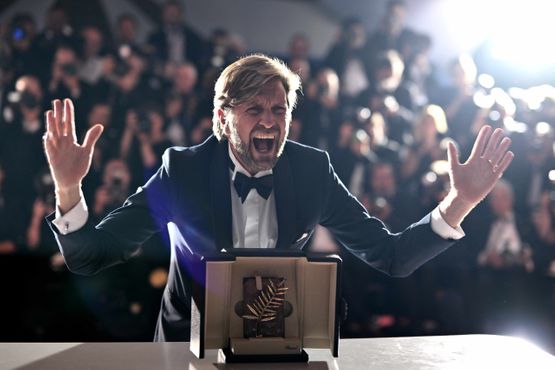Until 1954, the Jury of the Festival de Cannes awarded a "Grand Prix of the International Film Festival" to Best Director. Winners of this Grand Prix were then presented with a work by a contemporary artist in vogue.
At the end of 1954, upon the initiative of Robert Favre Le Bret, then Delegate General, the Festival's Board of Directors invited several jewellers to submit designs for a Palme, a tribute to the coat of arms of the City of Cannes. The original design which was finally selected was that of the renowned jewellery creator Lucienne Lazon. A trophy was then elaborated based on his design, with the bevelled lower extremity of the stem forming a heart, and the pedestal a sculpture in terracotta by the celebrated artist Sébastien.
In 1955, the first Palme d'Or in the history of the Festival was awarded to Delbert Mann for his film "Marty". From 1964 to 1974, the Festival temporarily resumed a Grand Prix.
In 1975, the Palme d’Or was reintroduced and became the enduring symbol of the Festival de Cannes, awarded each and every year since to the director of the Best Feature Film of the Official Competition. It is presented in a case of pure red morocco leather, lined with white suede.
At the beginning of the 80s, the rounded shape of the pedestal bearing the Palme, gradually changed, becoming pyramidal in 1984. In 1992, Thierry de Bourqueney redesigned the Palme and its pedestal in hand-cut crystal.
For the first time since its creation, the Palme d’or was awarded to a female director: New Zealand's Jane Campion, for "The Piano" in 1993. Gilles Jacob, former President of the Festival, remembers: “Jane is a feminist, she pointed out that she was the first woman to receive the award. I nicknamed her ‘Lady Palme d’or!’”. In 2021, Julia Ducournau was the second woman to be awarded the Palme d’Or for her Titane.
On the occasion of the Festival's 50th anniversary in 1997, a "Palme of Palmes" was awarded to Ingmar Bergman, presented in his absence to his daughter, Linn Ulmann, in the presence of twenty-eight other Palme d’Or winners.
In 1998, Theo Angelopoulos was the first director to win the Palme d'or as we now know it, for his film "Eternity and a Day". The Palme was modernised under the presidency of Pierre Viot by Caroline Scheufele, co-president of the Swiss watch and jewelry company Chopard Jewellers, which now donates the trophy every year. The Palme, made of 24-carat gold, is hand cast into a wax mould, then affixed to a cushion of a single piece of cut crystal and is now presented in a case of blue morocco leather.
From the 53rd Festival, two versions of the Palme were made for the Best Actor and Best Actress prizes. The first winners were Björk ("Dancer in the Dark" by Lars von Trier) and Tony Leung Chiu-wai ("In the Mood for Love" by Wong Kar-wai).
In 2013, for the first time in the history of the Festival, the Palme d'or was awarded both to a director, Abdellatif Kechiche, and to his two leading actresses: Adèle Exarchopoulos and Léa Seydoux, for "Blue is the Warmest Color". A second Palme is always held in reserve in case of material damage, or in the event of a joint winner, but that year a third trophy had to be made.
The Palmes are delivered to the Palais des Festivals at the last minute, just a few hours before the Closing Ceremony.
Ken Loach was the most recent director to win the Palme d'Or in 2016 for his film 'I, Daniel Blake', presented in Competition at the 69th Festival. Having already received the celebrated trophy for "The Wind that Shakes the Barley" in 2006, he joined the seven other directors belonging to the much-coveted circle of "double Palmes": Francis Ford Coppola (1974 and 1979), Shoei Imamura (1983 and 1997), Bille August (1988 and 1992), Emir Kusturica (1985 and 1995), Jean-Pierre and Luc Dardenne (1999 and 2005) and Michael Haneke (2009 and 2012). However, before the creation of the Palme, the director Alf Sjöberg had also picked up two Grands Prix for "Torment" in 1946 and "Miss Julie" in 1951.
For the 70th edition of the Festival de Cannes the trophy has been specially redesigned to provide a "frosted" effect. The Palme d’Or has been exceptionally incrusted with 167 diamonds "like stardust on its leaves and stalk". The diamonds were provided by an ethical supplier certified by the Responsible Jewellery Council.
After winning the Palme d'or in 2019, Bong Joon-Ho's Parasite continued its absolute triumph with more than 200 international awards. The film has entered cinema legend by breaking two new records at the Oscars: it's the first time a non-English language film has won the award for best picture, but also the first time a film has won the double Oscar, for best film and best international film. It has also gone down in Festival history: Parasite is the second Palme d'or winner to be honoured with the best film Oscar (after Marty by Delbert Mann in 1955).
Almost thirty years after Jane Campion, Julia Ducournau became the second woman to receive the Palme d’or, winning it for her second feature film, Titane. The French director thanked the jury for having “recognised the intense and visceral need that we have for a more fluid and more inclusive world” and “calling for more diversity in our experiences at the cinema and in our lives”.
By awarding Ruben Östlund the prize for his Triangle of Sadness, the Feature Films Jury chaired by Vincent Lindon ushered him into the tight-knit circle of two-time Palme d’Or winners: the Swedish director had already walked away with a Palme d’Or for The Square in 2017.
